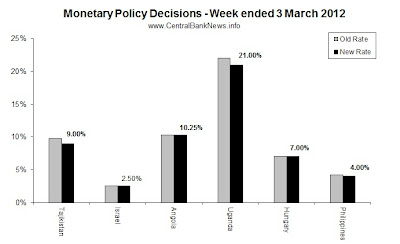We have mixed news on economic data today. New orders of durable goods decreased 4% MoM in January after seasonal adjustment, lower than the 3.2% increase in December and lower than market consensus of -1%. New orders of core durable goods, excluding transportation, dipped 3.2% MoM in January. Decreases were seen in primary metals, down 6.7% MoM; and machinery, down 10.4% MoM. Non-defense capital goods new orders, excluding aircraft, were down 4.5% MoM, also lower than 3.4% in December. This has been the steepest declined since 2009 and the reason behind it is the tax break that allows expensing full purchasing amount of the business equipments expired. On the positive side, consumer confidence rose to 70.8 in February from revised 61.5 in January, beating market consensus of 63. That’s the highest it has been in the past 12 month. The recent rally in the stock market and drop in unemployment gave American household more reasons to spend.







